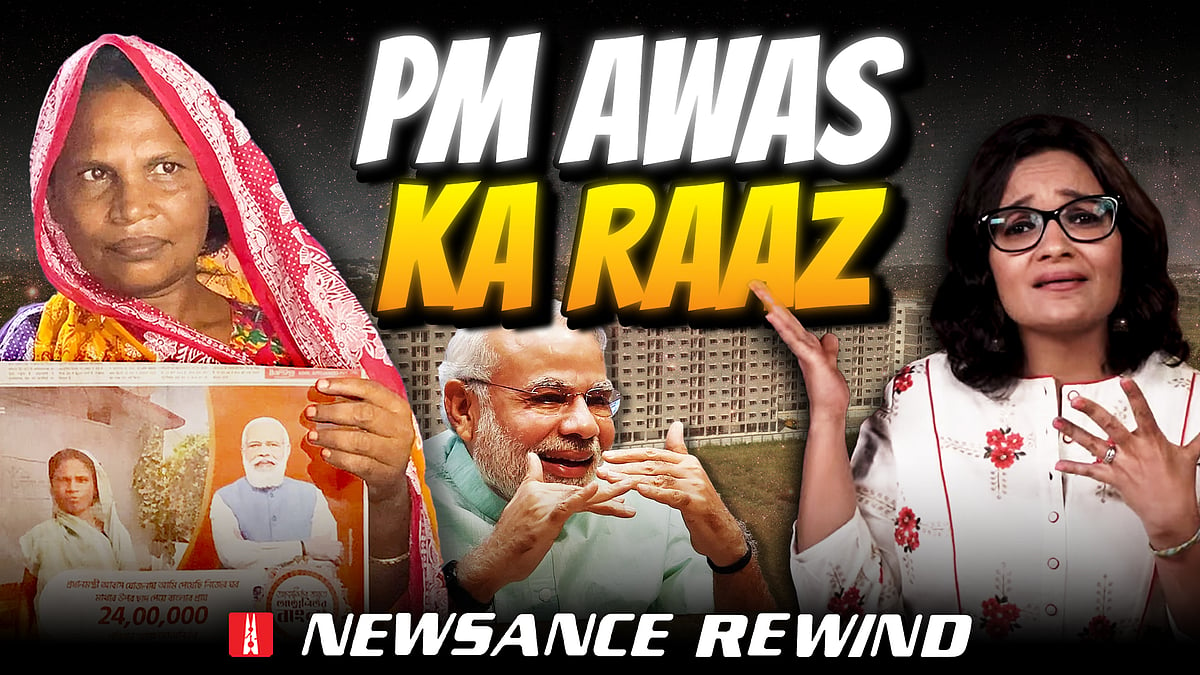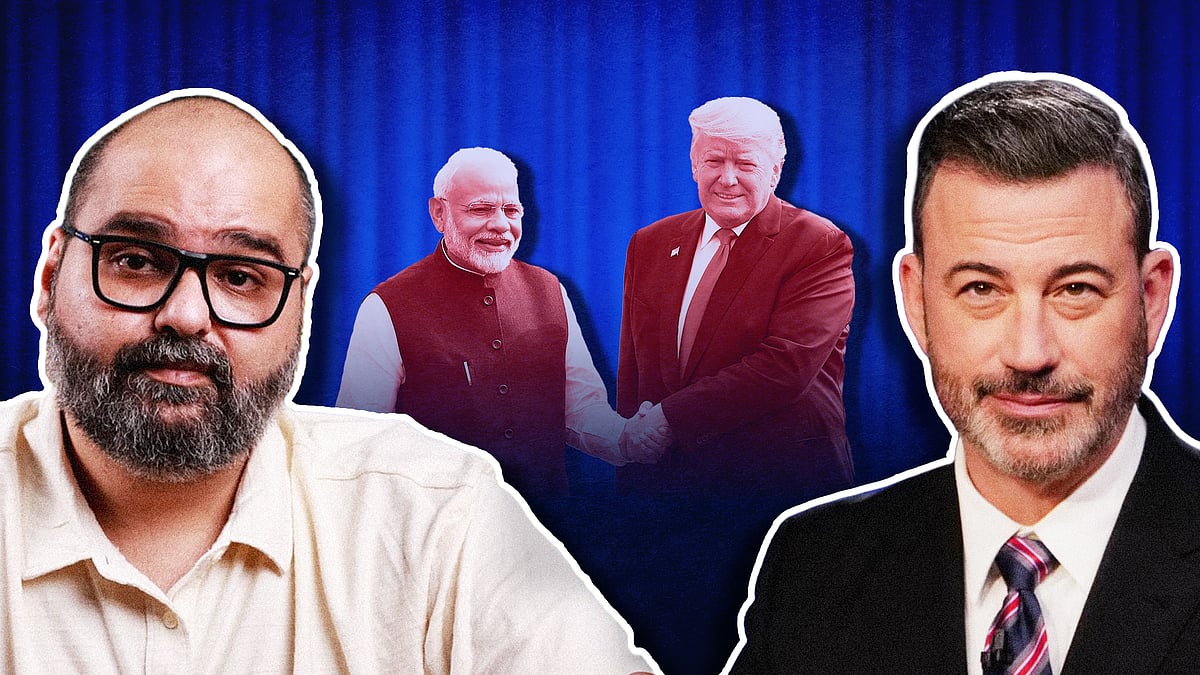‘Emotional mode, not election mode’: Modi on Bihar win at Ramnath Goenka lecture
PM uses Indian Express stage to defend his governance model, slam the Congress and ‘servitude’ mindset.
Delivering the sixth Ramnath Goenka Memorial Lecture in New Delhi, Prime Minister Narendra Modi said his government does not win elections by being in “24x7 election mode” but by operating in “emotional mode”. A mode driven by an “inner restlessness” to ease the hardships of citizens, he said.
PM Modi used the Express platform to set out a broad defence of his governance model, link it to public participation in Bihar’s recent election, and reflect at length on the legacy of Indian Express founder Ramnath Goenka.
This comes years after Modi’s speech at the Ramnath Goenka awards in 2016. Modi had bemoaned the lack of an Indian media outlet that isn’t famous internationally, cracked a not-so-subtle joke about how much media attention he’s enjoyed, and enjoyed some thunderous applause when he made a bizarre comment about crimes against Dalits. He received a response on stage.
On Monday, delivering the welcome speech, Express Group chairman Viveck Goenka traced back the time when Ramnath Goenka stood firm during the Emergency: “In the 75th year, we are reminded that democracy survives through daily acts of courage by leaders who listen, journalists who persist and readers who care.”
‘Don’t know how much Express covered Bastar Olympics’
Responding to commentary in “some in the media” after the Bihar results, Modi on Monday said: “Some Modi admirers have again said that BJP and Modi are always in 24x7 election mode. I believe that to win elections, what is needed is not election mode but being in emotional mode.”
“When the government has worked continuously to ease the poor’s hardships… fulfil the aspirations of the middle class,” he said, “its results become visible on election day.” This is what happened in Bihar, he said.
Modi repeatedly invoked Ramnath Goenka, calling him a figure who elevated the power of journalism, expression, and public movements in Indian democracy and built the Indian Express Group not just as a newspaper, but as a mission. He praised Goenka’s role in various episodes, from Hyderabad’s integration to the Bihar student movement. Modi said Goenka “always placed national interest first,” calling him a source of inspiration as India works toward becoming a developed nation.
A large section of his lecture focused on “true social justice,” contrasting it with what he called decades of political misuse. Modi cited the construction of “12 crore” toilets, “57 crore” Jan Dhan bank accounts, “4 crore” pucca houses,” and expanded social security that now covers “94 crore Indians” as examples of real inclusion. This, he said, had enabled “25 crore Indians” to rise out of poverty. He also highlighted the Aspirational Districts Programme, saying previous governments had “forgotten” regions where “more than 25 crore Indians” lived. These districts, he said, were now “outperforming many other districts,” citing Bastar as an example and noting: “I don’t know how much coverage the Indian Express gave the Bastar Olympics, but Ramnath ji would have been delighted.”
Turning to the Bihar election, Modi said the record turnout, especially with women’s voting “about 9 percent higher than men,” showed how “people’s confidence and optimism in democracy” had strengthened. The results, he said, reinforced that citizens “trust those political parties that work with sincerity” and keep “development at the forefront.”
Modi used one anecdote about Goenka’s own Jana Sangh candidacy, when Nanaji Deshmukh told him to “come again only to collect your victory certificate,” to highlight “the dedication of BJP’s countless devoted workers,” saying many had nurtured the party “with their blood” in states like Kerala and West Bengal.
Modi then launched a sharp attack on the Congress, alleging it had “nurtured this anti-constitutional Maoist terror” and allowed “urban Naxals” to infiltrate institutions. He said the party had turned into “a Muslim League–Maoist Congress (MMC).”
A substantial portion of the address examined what Modi called the “mentality of servitude” imposed since Macaulay’s 1835 reforms. India, he argued, continued to suffer from undervaluing its heritage, indigenous knowledge systems, and languages. He urged the nation to “resolve that over the next 10 years, we will free ourselves from the mindset of servitude,” aiming to “lock away this mindset” by 2035.
The PM noted that despite global disruptions, from Covid and supply-chain breakdowns to crises in Europe and West Asia, India had recorded robust growth. “From this Indian Express platform, I can say: India is not just an emerging market; it is an emerging model.”
If the government can hike print ad rates by 26 percent, we can drop our subscription prices by 26 percent. Grab the offer and power journalism that doesn’t depend on advertisers.
 TV Newsance Rewind: Manisha tracks down woman in Modi’s PM Awas Yojana ad
TV Newsance Rewind: Manisha tracks down woman in Modi’s PM Awas Yojana ad  Jimmy Kimmel to Kunal Kamra: Trump’s US follows a familiar playbook from Modi’s India
Jimmy Kimmel to Kunal Kamra: Trump’s US follows a familiar playbook from Modi’s India